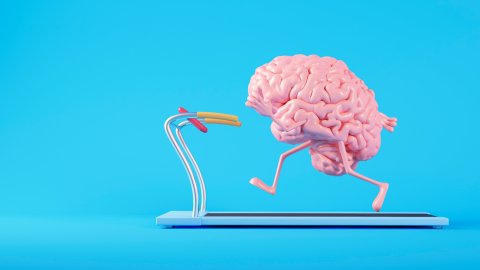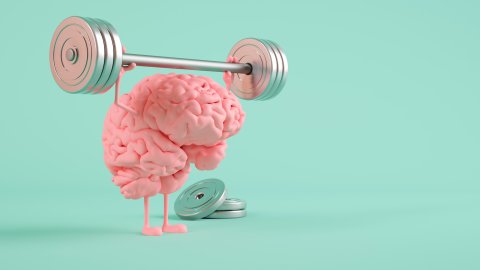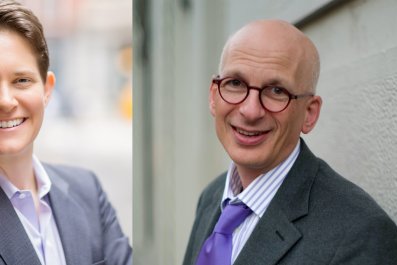Learning is a lifelong endeavor. But it is not the same endeavor all your life long. Your brain changes over the course of time, and so does your social and physical environment. In each phase of life, however, six physical and environmental factors are crucial to learning—sleep; exercise; diet; support for physical and mental health; opportunities for mastery; and safety to fail.

Physical Needs
Sleep. The effects of sleep on learning are direct and immediate. Sleep is so crucial to the processes of learning, memory, judgment and insight, that it should be factored into any educational or creative project plan. Exercise. Exercise improves mood, decision-making and other psychological functions, which facilitates learning and the ability to use what is learned. Strength, aerobic and balance/control exercises like yoga and tai chi are all helpful. Heart-Healthy Diet. The mechanisms here aren't well understood, but a body of evidence shows striking effects of a heart-healthy diet on cognitive performance, particularly in later life.
Environmental Needs
Support for physical and mental health. If a person's environment does not support their well-being, their capacity to learn will be diminished. Basics include quality food, health care, space and time for exercise and sleep, as well as social norms that encourage healthy habits, and practical help when needed. Opportunities for mastery. Experiences of mastery teach people that they can learn, that the initial state of helplessness or confusion in the face of a new challenge will dissipate and be replaced by competence. A healthy learning environment, therefore, provides plentiful and diverse opportunities for people to experience mastery. Safety to fail. No one achieves mastery—at crawling, coding or anything else—without some initial awkwardness. Learning inevitably involves getting it wrong, taking too long, forgetting key things, making poor choices. If these experiences are punished or made shameful, learning will be impeded, as extensive research by our colleague Amy Edmondson has shown. An environment that promotes learning is one that destigmatizes and even celebrates the mistakes that come from learning or worthwhile experimentation.
Here's how to take advantage of the key factors at each stage of life.
Early Adulthood (15–25):
Take the Right Risks
When people are asked to reflect on their most important life events, chances are they will recall moments from this extraordinarily important, emotionally vivid, cognitively blooming decade. The brain of an adolescent is changing and developing nearly as fast as in infancy. These are the years when people make important choices about education, occupation, social and romantic relationships, beliefs and ideologies. The decisions made at this point in life have a profound impact on future learning opportunities
A 15-year-old is intellectually adult in many ways, able to think abstractly, think through scenarios, consider multiple points of view, plan long-range action, make independent moral judgments. A 15-year-old can process novel information faster than an adult. What a 15-year-old lacks is wisdom, due to limited life experience and, more importantly, a not-yet-fully developed brain. The prefrontal cortex—the part of the brain that integrates information and plans appropriate actions to achieve goals, a series of processes known overall as "executive function"—does not fully mature until about age 25.
Adolescent behavior is characterized by three things: seeking novelty, taking risks and intense concern with the peer group. The "Teen Triad" behaviors have been observed not only in all cultures, but in nearly all social mammals. The interlocking nature and cross-species universality of the Teen Triad suggest that they are crucial to learning. At the same time, as any parent can attest, the Triad can pose a great risk to present learning and future opportunities. The primary challenge in early adulthood is to take the right risks: risks that will enhance, rather than foreclose, possibilities of future learning.
The most necessary risk is the failure inherent in learning. Failing in front of peers is particularly painful for early adults. This can lead to a default tendency to maintain appearances at the cost of actual learning.

Advice for Early Adulthood
Your memory is as strong as it will ever be, and you also have more time to dedicate to learning than you will later on in life. Take advantage of this! Languages, anatomy, formulas, dates and names—whatever the baseline of knowledge is in your field, absorb it now. Think of it as packing a bag for a long trip, and stock up on anything you might want when you're 40.
Develop learning-friendly habits—sleep, exercise and diet, along with meditation, spending time outdoors, journaling or some other reflective exercise.
Your brain is not yet physically capable of providing reliable direction when it comes to long-term planning, so augment it with technology. Use automatic retirement deductions, site blockers, productivity or habit-tracking apps, whatever works to supplement your executive function.
If you think you may have dyslexia, attention deficit disorder or any other learning disability or disorder, try to get tested while you are still in the educational system.
Emerging Adulthood (25–45):
Absorb and Reflect
Once the brain is physically matured, adult life is structured more by cultural norms and individual life choices and experiences than by biology. Some 40-year-olds are grandparents; some are first-time parents. A 30-year-old may be retiring from a career in sports, or just beginning one in medicine.
Midlife is busy and characterized by more social roles (for example, parent, worker, student, spouse, committee member) than any other life stage. Life transitions proliferate, as these years see multiple changes in work, family life, physical health and more.
Fortunately, Emerging Adults are at the top of their game, enjoying the best of youth and age. The risky behaviors of youth have subsided, the immune system is strong and the risks of cancer and heart disease are low. Intellectually, most skills are at their peak and the Emerging Adult has had sufficient education, training and experience to have developed real expertise in a field or two.
Much of the learning of this phase comes from direct life experiences, rather than instruction or study. Not all learning is explicit, nor does it all take place on the conscious level. What is learned in midlife often cannot be taught in books. The challenge of emerging adulthood is to create time and space to absorb and reflect on the lessons that life is bringing.
Tips for Emerging Adulthood
Prioritize physical health. "Body over mind" isn't a bad motto for these years. This is important for two reasons. First, your physical health and habits in these years are predictive of functioning (both physical and mental) in later life. Second, in the present, good sleep and exercise habits will improve your ability to absorb, integrate and use all the new knowledge, skills and wisdom you are accumulating.
Try not to compartmentalize the various life roles you are playing. Having diverse people around you promotes creativity and learning—and so does having inner diversity as well. What skills, knowledge perspective can you transfer from one role or situation to another?
Get in the habit of forming cross-generational friendships, a spur to learning that will become increasingly important over time.
Established Adulthood (45-60):
Don't Get Too Big to Fail
At this point, there is some inevitable slowing down. Memory and processing speed are not what they were earlier in life. However, wisdom and accumulated knowledge are very high, which can compensate—or more—in real-life situations. Aging successfully means making these trade-offs and figuring out how to "work smart" using pattern recognition, decades' worth of experience, external aids and personal networks. This is the stage when the resources accumulated in earlier phases of life—healthy habits, diverse relationships, expertise, self-awareness—start to really matter.
Play to your strengths—but balance that with trying new things, taking risks, daring to fail. If you don't push past your competence/comfort zone at this age, that zone will inevitably contract. The challenge for this phase is to avoid being fooled by your own wisdom, and to make time for failure.
Tips for Established Adulthood
Established adults are usually concerned with "generativity," or giving back to the next generation in some way—successfully launching their children, teaching or mentoring at work, political or community involvement and the like. Find your own mode of generativity as a source of both meaning and learning. Seek formal or informal reverse- or two-way mentoring relationships with younger people.
Strength and aerobic exercise become increasingly important for cognitive function and emotional well-being (which directly affects the ability to put what is learned into practice). It isn't too late to start developing this habit now. If you are a regular exerciser, think about switching up your routines to introduce novelty.
If possible, get a neuropsychological assessment at this point to serve as a baseline of your personal "normal." Any age- or injury-related impairments later on can be assessed more accurately if you have this.
Late Adulthood (60+):
Prune and Graft
People are living, working and learning longer. Still, aging takes a toll. The biological mechanisms of learning (attention, memory, reasoning, executive function) naturally decline.
Motivation also changes with age. Early adults are driven to seek novelty, later adults are not. Those who do remain open to new experiences—particularly people who make a point to learn new skills and process new information—have less cognitive decline than peers who do not. This learning, however, does not need to be academic or professional—wisdom, improved social skills, self-knowledge are also learning goals. People are more motivated by personal, emotional goals than by achievement at this age.
This motivational shift shows in the workforce, where both early and later adults are more concerned with meaning and sociability than with money or status. For younger people, this reflects the importance of the peer group and identity development. For older adults, it reflects the main challenge of this phase of life—to cut back on all but the most vital, rewarding commitments and roles, and combine those roles as much as possible. Prune and graft!
Tips for Late Adulthood
One of the best ways to "prune and graft" is to combine physical exercise with mental activity—games, dance, tai chi, "forest bathing." Engaging the mind and body at the same time has a multiplicative effect.
Push back on negative stereotypes of aging and the elderly, both in society at large in terms of any internalized beliefs you might have.
Continue to plan future activities and projects. These do not have to be grand, ambitious undertakings, but a sense of meaningful forward motion is crucial in later life.
Indulge in active nostalgia, if you wish. You have a lifetime to look back on. Reconnect with old friends, research your family history, resume a hobby from your youth. Your accumulation of knowledge at this point can lead to truly striking, original ideas.
"Brain training" computer games may entertain your brain, but don't improve cognitive performance. Mindfulness training and meditation, by contrast, have been shown to improve both intellectual performance and neural connectivity (that is., actual brain anatomy).

Conclusion
Continual learning is a central aspect of who we are as a species. It is good for our bodies, our brains and our communities.
Developing both objective professional competencies and the broader, fundamental skills of being human requires taking a measure of control over your own life's learning. This process must be both proactive (deciding what skills and knowledge you want to develop and creating a plan to do so) and retrospective (reflecting on your experiences and observations and drawing lessons from them).
Not only is learning a lifetime activity, but so too is learning to learn. Your brain is not the same from decade to decade. Neither are your priorities, schedule, social roles, physical health. Each phase has new challenges, new advantages. Throughout it all, though, two things are and always will be true about learning: Anyone can get better at anything. The cost of improvement is failure.
Robin Abrahams is a research associate at Harvard Business School. Boris Groysberg (@bgroysberg) is Richard P. Chapman professor of business administration at the Harvard Business School and co-author of Talk, Inc.: How Trusted Leaders Use Conversation to Power their Organizations.












